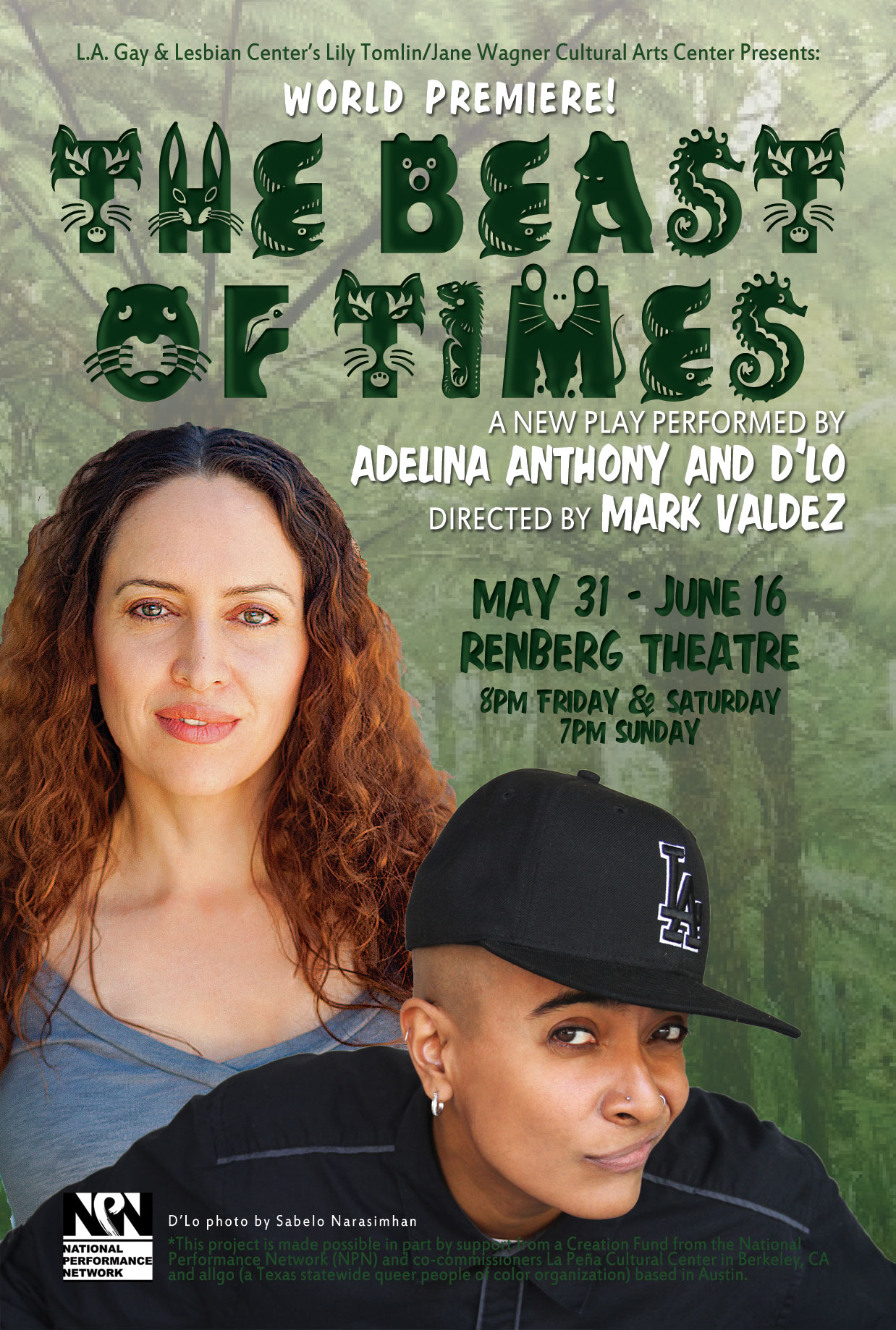D'LO and us on Saturday's show. <3
Now
that finals have taken over my life, I am glad to have finally gotten some time
to reassure my self-sanity and taken it upon myself to reward myself with a
show that brought me nothing but consciousness and laughter; through the show,
Beast of Times, written by Adelina Anthony. This play showcases the struggles
of consciousness in an intersectional level while using animals and
environmental justice to display the complexities of the human race. They also,
“expose the human love of greed and the human
greed for love.” There are a lot of parts in the show that highlighted the
different institutional problems that people of color and other minority groups
face. One of the ones that really stood out to me was the comparison of the
treatment of animals too that of the Prison-Industrial Complex. In which
Adelina makes a connection to the cruelty and inhuman treatment of the “colored
chickens” in comparison to those that are made to be organic (signifying the
humans that are white and don’t face the institutional problem of the corrupt
prison system.) In itself we could also connect this idea to the fact that
people of color who are often lower class are subject to eating meat that gets
this treatment in the factories, whereas most privileged, upper class folks
have the money and resources to invest in more healthy and nourished chickens,
thus connecting to the health of people of color.
In addition, there was another part
in which I felt a sense of loss. Within the play Adelina connects the audience
to the issue of the sterilization of womyn. She uses one of her characters “Catalina
or Gatalina” to show her getting spayed which later leads to her rethinking all
of the lives of multitude of mujeres that have been forced to undergo
sterilization either through institutionalized oppression or secret and
forceful tactics to ensure they no longer have the chance at procreation or
more bluntly to commit another form of genocide within certain races. Through
this play they also incorporate queerness and a multitude of queer alliances
within the movement; however, they make a strong point to show the fact that
within activism and social justice work many activists make the mistake of playing
Oppression Olympics and justifying their own oppression by ranking their
struggles and the struggles of others. This was connected to the dog in the
play that was very privileged of having a home and owners to take care of her,
whereas there are other animals that do not have that privilege and are usually
targeted by all of society, which could be an allegory for the racial caste
system or the idea of class privilege.
Overall this was a beautiful play that showcased the struggles that many of us face, many of which we discussed throughout class. I was pleased to have had the privilege of attending the event and would recommend it to anyone who seeks consciousness and laughter if the opportunity to see it ever arises.






